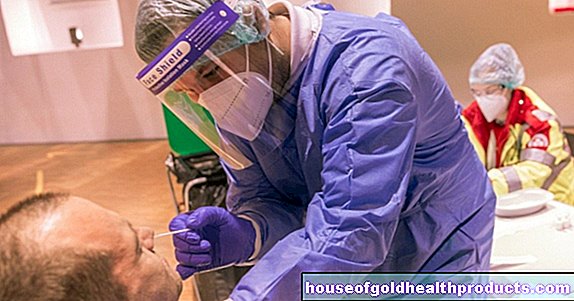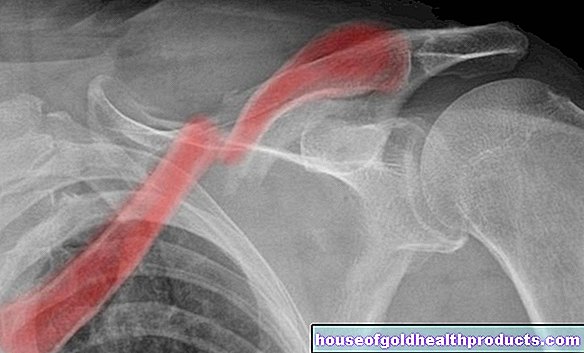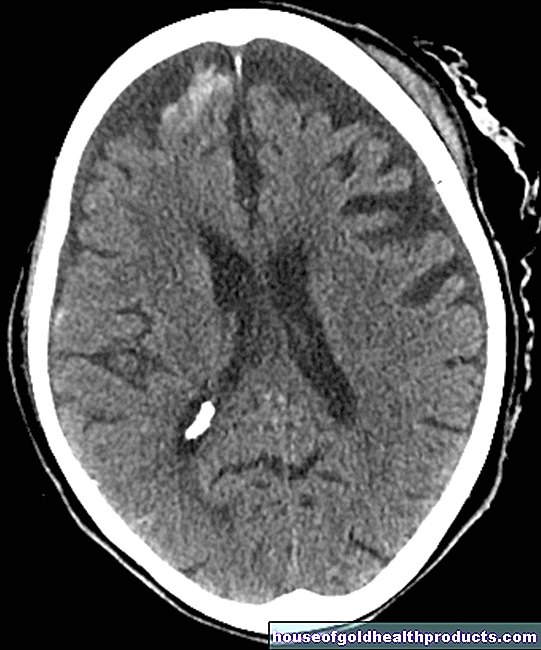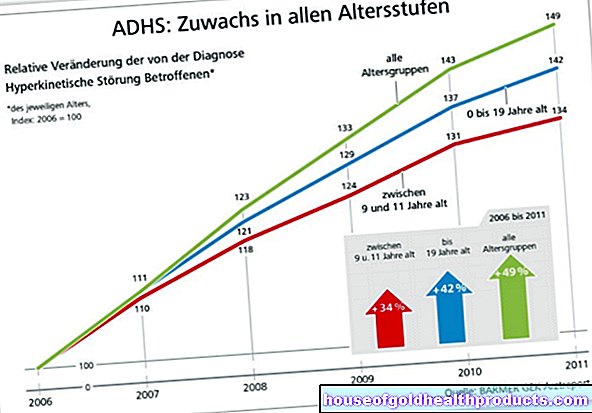The liver looks old in fat people
All content is checked by medical journalists.MunichGetting older is part of life. However, not all parts of the body age at the same rate: in overweight people, for example, the liver is biologically older than in people of normal weight.
The liver of a woman weighing 100 kilograms with a height of 1.65 meters would be three years older than if she weighed only 70 kilograms - this is shown by the results of the German-American study by Steve Horvath and his colleagues. The aging process of other organs and tissue types does not seem to be related to obesity.
Genes reveal biological age
The researchers examined around 1200 tissue samples from muscles, fat, blood and the liver of overweight and normal-weight people for cell changes. Because not only wrinkles and gray hair, but also changes in the human genome in the cells reveal age: As we get older, new bonds of methyl groups and genes are created and other bonds are dissolved. The scientists made use of what is known as DNA methylation to identify the biological age of the various tissue samples.
For every 10 BMI points above normal weight, the biological age of the liver cells increases by an average of 3.3 years. Unfortunately, the aging process of the liver cannot be reversed even by drastic weight loss, for example with the help of an operation. “The liver remembers its age,” write the researchers. But losing weight is not pointless: With significantly less on the ribs, aging may progress at a normal pace again.
Fatty liver and liver cancer
The study results highlight the health risk of various organs in overweight people. "The faster aging of the liver could explain why certain diseases, such as liver cancer, are much more common in overweight people than in slim people," explains Prof. Clemens Schafmayer, one of the participating scientists from the University Medical Center Schleswig Holstein. His colleague Prof. Jochen Hampe from the University Hospital Dresden says the results are one more argument to try to maintain a normal body weight.
There are many factors that influence weight - some are in your own hands and some are not. Obesity in and of itself is not a disease, but it does increase the likelihood of various diseases such as type 2 diabetes and cardiovascular problems. The development of a non-alcohol-related fatty liver is also related to being very overweight. “The number of such diseases has increased significantly in the past 30 years,” writes the Competence Network Obesity.
A BMI value between 25 and 30 kilograms per square meter (kg / m²) is defined as overweight, from 30 kg / m² one speaks of obesity (adiposity). The body mass index is calculated from the body weight (in kilograms) divided by the square of the body height (in meters). (vv)
Sources:
Horvath, S. et al. Obesity accelerates epigenetic aging of human liver. PNAS, October 13, 2014. DOI: 10.1073 / pnas.1412759111
Carl Gustav Carus University Hospital. Scientists from the University Clinics in Dresden and Schleswig-Holstein, together with colleagues from the USA, analyzed the genes of cells in overweight people: only liver cells age earlier. http://www.uniklinikum-dresden.de/presse/aktuelle-medien-informationen/14-oktober-2014-ubergewicht-lasst-die-leber-schneller-altern/?searchterm=%C3%BCbergewicht%20Leber, accessed on 10/15/14
National Institutes of Health, Epigenetic Clock Marks Age of Human Tissues and Cells. http://www.nih.gov/researchmatters/november2013/11042013clock.htm, accessed on October 15, 2014
Competence Network Obesity. Fatty liver even without alcohol? http://www.kompetenznetz-adipositas.de/presse.html, accessed on October 15, 2014








.jpg)





















